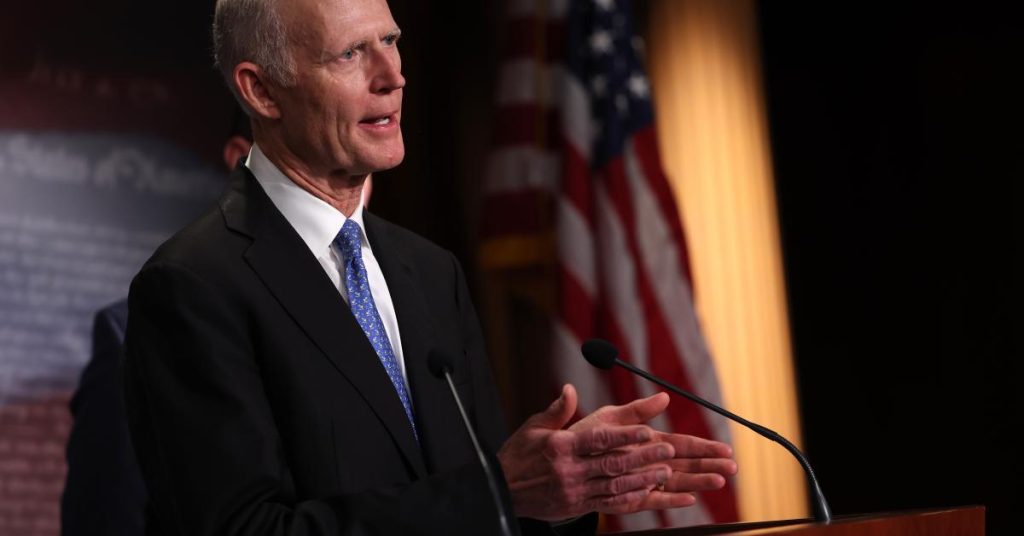Senator Rick Scott from Florida has made it clear that he’s not on board with the current version of the House GOP’s budget bill. He shared his thoughts during an appearance on The Charlie Kirk Show, expressing concerns about the bill’s failure to significantly cut government spending. Scott emphasized that several prominent Republican senators share his concerns about what he called the “Big, Beautiful Bill.”
Scott specifically mentioned Senators Ron Johnson, Rand Paul, and Mike Lee, stating their collective desire for a bill that aligns with their vision for the country. Their priorities include securing the U.S. border, advancing President Trump’s agenda, and strengthening the military. However, the current proposal doesn’t seem to fit the bill for them, pun intended.
The senator pointed out that the House’s plan only reduces spending by less than 2% over the next decade, which he sees as inadequate. He noted that the proposal doesn’t come close to balancing the budget, a critical issue for many conservatives. Scott is determined, along with his colleagues, to push for a budget that truly addresses these financial concerns.
Charlie Kirk asked Scott if he would vote against the bill if it remained unchanged. Scott didn’t hesitate, affirming his intent to vote “no” without significant revisions. He stressed that the bill won’t garner the necessary support to pass in its current form.
Scott underscored the importance of balancing the budget, especially given the challenges the country faces. He mentioned the increasing difficulty in selling U.S. Treasuries, a sign of waning financial confidence. Scott also pointed to rising interest rates as a concern that needs addressing through fiscal responsibility.
The senator argued that controlling inflation is tied to balancing the budget. Scott believes that getting interest rates down is crucial for economic stability. He and his allies are committed to ensuring the budget reflects these priorities.
The discussion reflects a broader debate within the Republican Party about the best path forward. While there’s agreement on the need for fiscal responsibility, the specifics remain contentious. Scott and his fellow senators are advocating for a more aggressive approach to spending cuts.
Scott’s stance highlights a classic conservative priority: reducing government spending and balancing the budget. This fiscal conservatism is a hallmark of the political ideology championed by figures like Ronald Reagan and Barry Goldwater. The senator’s comments resonate with those who prioritize limited government and fiscal prudence.
As negotiations continue, it’s clear that this budget battle is far from over. The outcome will depend on whether the House can address the concerns of Scott and his colleagues. The stakes are high, with economic stability and conservative principles on the line.
Scott’s firm position suggests he won’t compromise easily. He’s calling for a budget that strengthens the country’s financial health, aligning with a long-standing conservative agenda. The senator’s determination is evident as he vows to “fight like hell” for a balanced budget.
The broader Republican caucus is likely to face a challenging negotiation process. Finding common ground among various factions will be crucial for passing a budget that satisfies all parties involved. Scott’s vocal opposition may drive further discussions and potential revisions.
As the debate unfolds, the focus remains on crafting a budget that meets the demands of fiscal conservatism. Scott’s insistence on significant changes reflects a deeply held belief in the importance of financial discipline. This insistence is likely to shape the ongoing discussions within the party.



